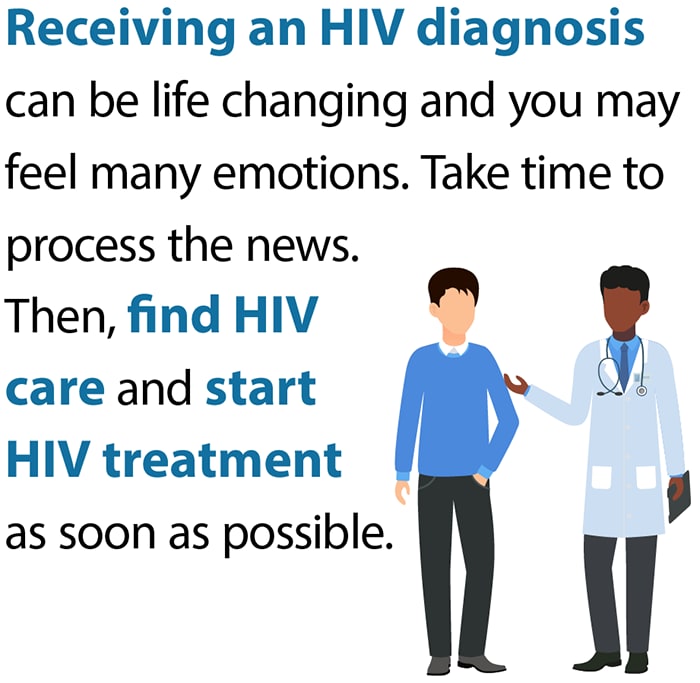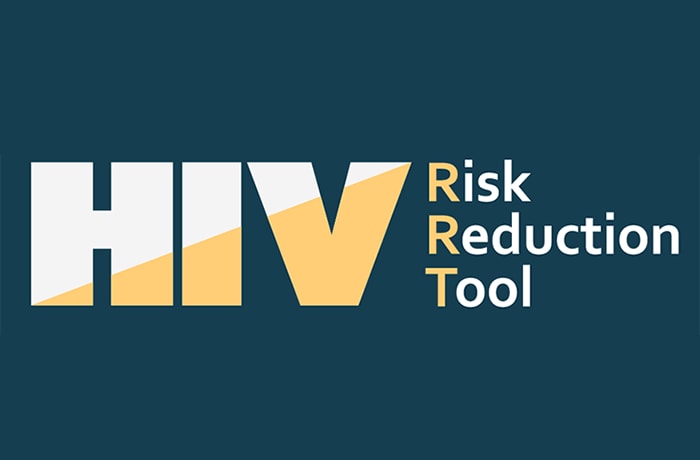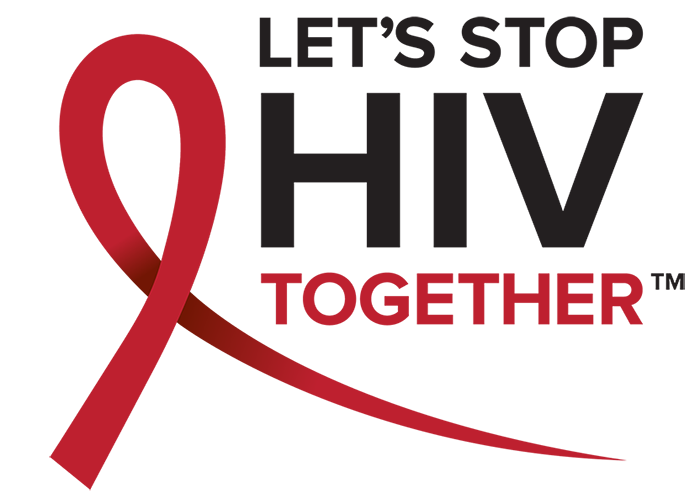Understanding a Positive Result

If you use any type of antibody test and have a positive result, you will need a follow-up test to confirm your results.
- If you test in a community program or take an HIV self-test and it’s positive, you should go to a health care provider for follow-up testing.
- If you test in a health care setting or a lab and it’s positive, the lab will conduct the follow-up testing, usually on the same blood sample as the first test.
If the follow-up test is also positive, it means you have HIV.
Receiving an HIV diagnosis can be life changing. You may feel many emotions—sadness, hopelessness, or anger. Allied health care providers and social service providers can help you work through the early stages of your diagnosis. They can also help you find HIV care and treatment that will help you live a long, healthy life.
- HIV treatment (antiretroviral therapy or ART) is recommended for all people with HIV, regardless of how long they’ve had the virus or how healthy they are.
- HIV treatment can make the amount of HIV in the blood (viral load) so low that a test can’t detect it (undetectable viral load). Getting and keeping an undetectable viral load is the best way to stay healthy and protect others.
Learn more about being newly diagnosed with HIV and about protecting others.
No. Testing positive for HIV does not mean you have AIDS.
- AIDS is the most advanced stage of HIV disease (Stage 3).
- HIV can lead to AIDS if a person with HIV does not get treatment or take care of their health. But if someone with HIV takes their HIV treatment as prescribed, they can live long, healthy lives, and may never develop AIDS.
Learn more about AIDS.


